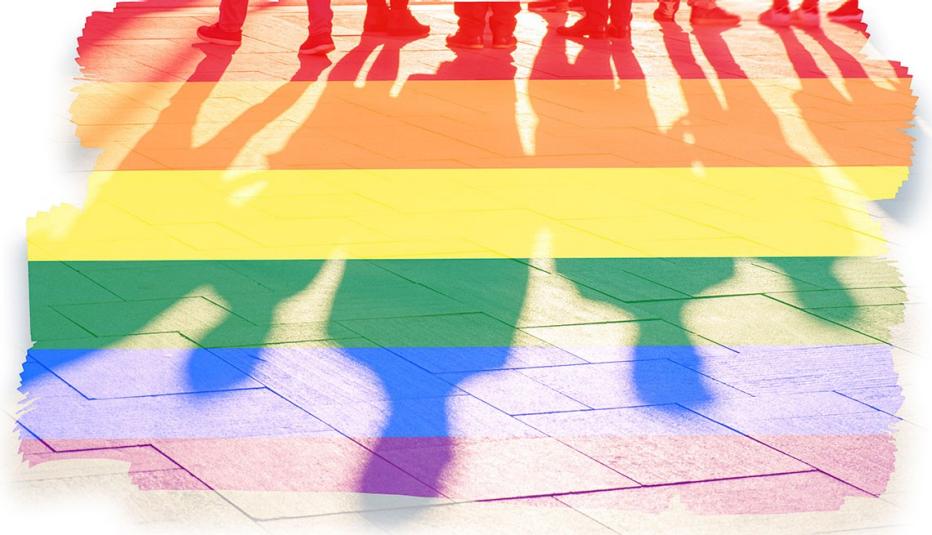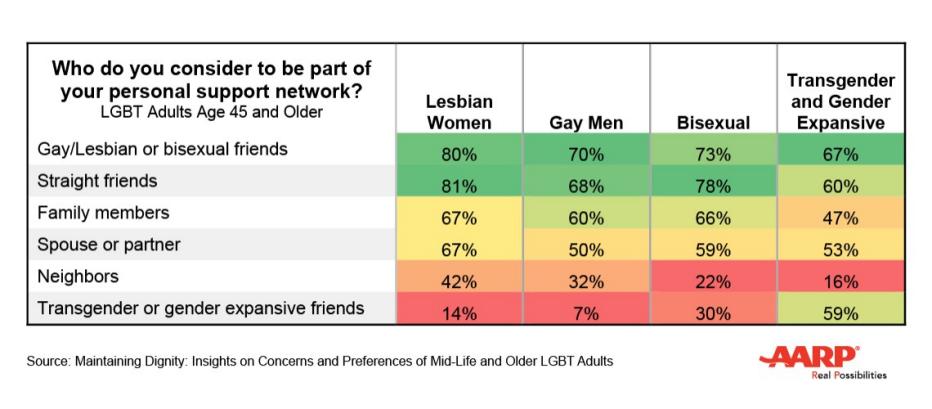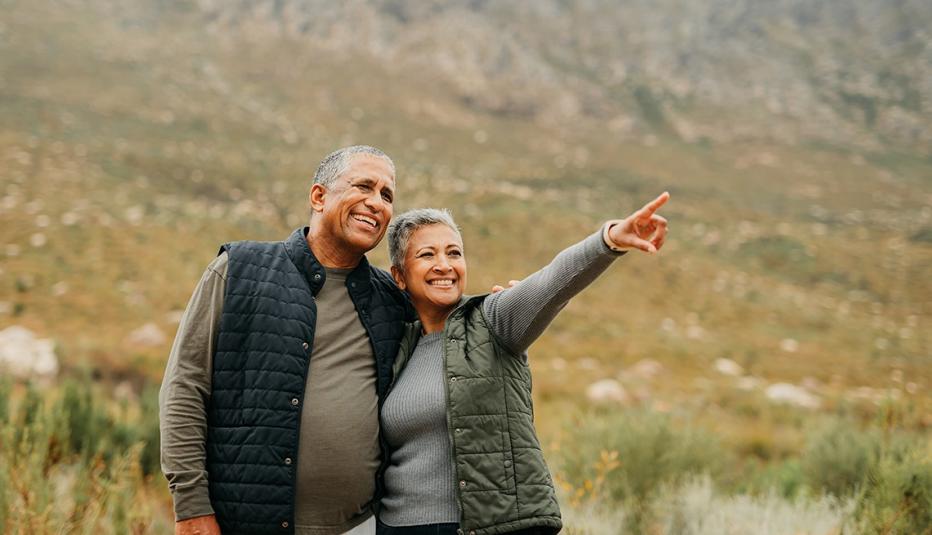Partnering Patterns and Support Networks May Affect Future
Same-sex couples do not partner at the same rate by gender.
Transgender or gender expansive individuals are also less likely to be connected to sources of social support.
In Search of LGBT-Friendly Communities
Older LGBT Americans live in cities and towns of all sizes.
Housing access is another dimension significantly impacted by the LGBT-friendliness of the community.
Concerns within the LGBT community about long-term care are great, particularly for gender expansive individuals.
Majorities cite concerns about neglect, abuse, refused access to services, or harassment.

Eighty-seven percent (87%) of respondents have at least a good relationship with their health care provider.
Gender expansive participants were intentionally oversampled to allow for analysis and data reporting of this segment.
See the full method statement for more details on sampling and data weighting.

For more information contact Angela Houghton atAHoughton@aarp.org.





